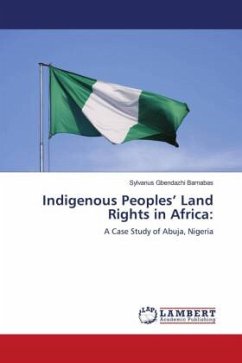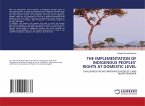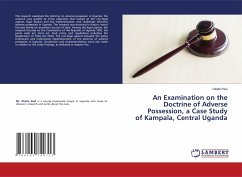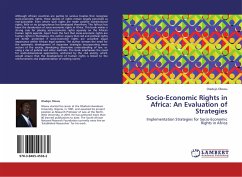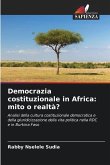Indigenous peoples (IPs) suffer from injustices in relation to land globally. This book uses the case study of Abuja, Nigeria to demonstrate the significance of international law in safeguarding land rights of indigenous peoples in Africa. One avenue explored in addressing dispossession of IPs' lands in Africa, is through considering the relevance of international law on their rights. However, there is no universally agreed definition of IPs. In the determination of whether international law provides solutions to the challenges of protecting land rights of Abuja peoples of Nigeria, the existing description of IPs is challenged. The second avenue, explored herein, is through a comparative approach to understanding how Kenya has resolved these challenges and how Nigeria should respond to similar challenges. The case study is used to illustrate the need for a viable relationship between State law, IPs' customary law and international law. The choice of Nigeria is because the case study is in Nigeria. The choice of Kenya as a comparator is because, like Nigeria, Kenya is Anglophone with a plural legal system and has recently embarked on law reforms in relation to customary land rights.
Bitte wählen Sie Ihr Anliegen aus.
Rechnungen
Retourenschein anfordern
Bestellstatus
Storno

